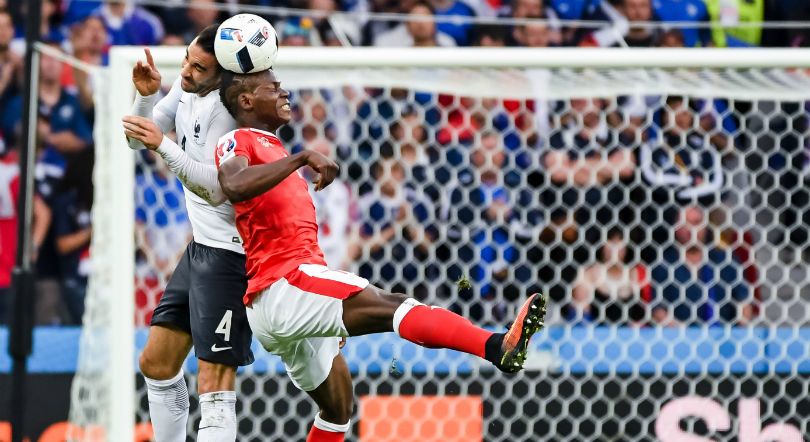Michael Cox: How Granit Xhaka has justified Wenger's confidence at Euro 2016
Arsenal's new signing is impressing at the Euros and already looking like an astute capture for the Gunners. Michael Cox looks at the enforcer's contributions so far in France
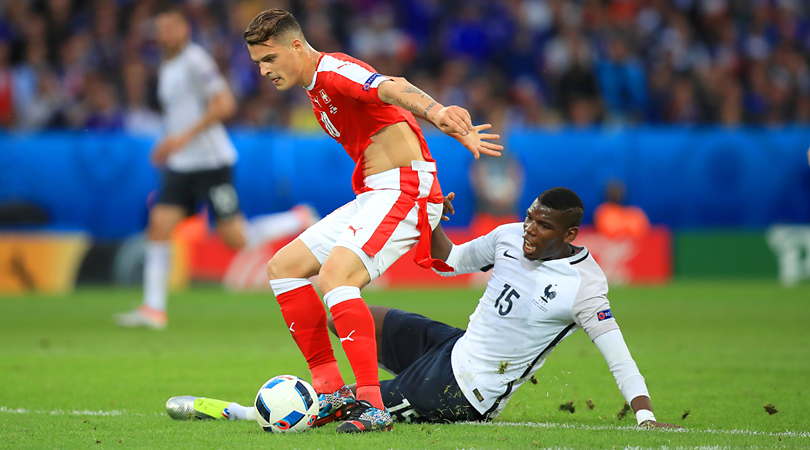
Major international tournaments are often considered a handy shop window for emerging players to attract interest from major clubs – but Arsenal pounced early to confirm the signing of Granit Xhaka in late May.
The north Londoners paid a great deal of money for the defensive midfielder, with various estimates of between £30-35m, but that might be considered a bargain considering Xhaka’s impressive performances in the Switzerland midfield at Euro 2016. So far he has demonstrated precisely why Arsene Wenger decided to shell out quite so much money.
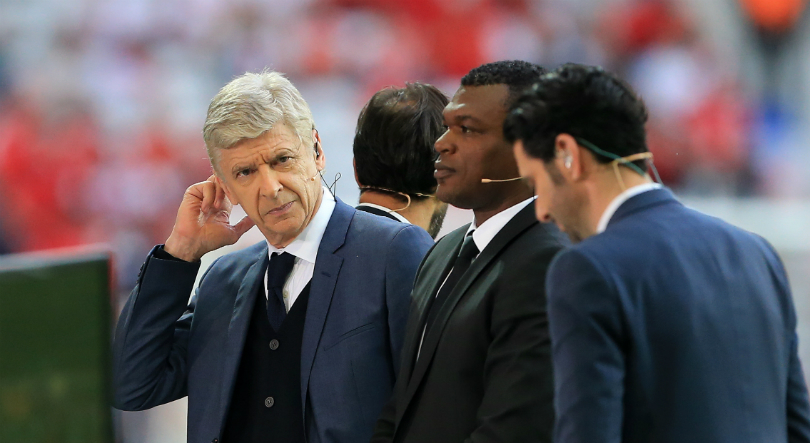
Not just a tough tackler
Xhaka is predominantly a defensive midfielder, and during his four years with Borussia Monchengladbach he became renowned for his tough tackling. He was dismissed three times in the Bundesliga last season, but as you’d expect for a player Wenger clearly likes, he’s also excellent in possession.
For his club side last season he was most notable for his long, diagonal passes towards the flanks. For Switzerland, however, he’s demonstrated an ability to play more penetrative forward passes in attack.
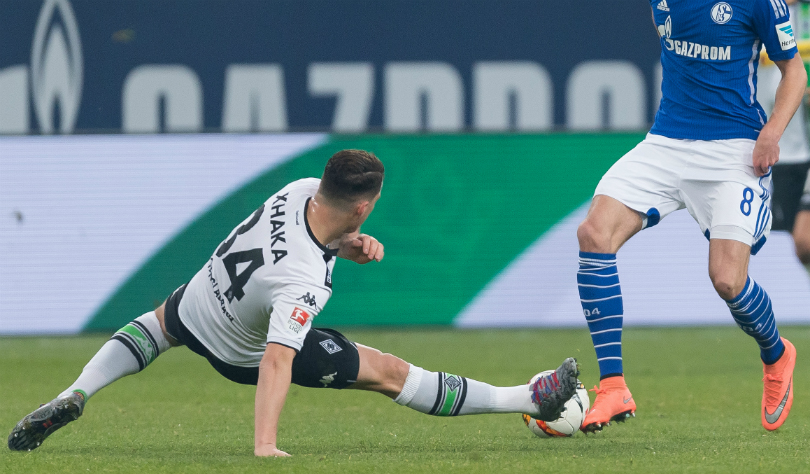
This is becoming an important concept for defensive midfielders, especially at a tournament like Euro 2016 when the majority of sides are sitting extremely deep, remaining narrow and encouraging teams to play balls towards the flanks. Crossfield passes aren’t enough to shift defences and cause them problems, and Xhaka has proved himself capable of feeding attackers in central positions, creating chances despite his deep-lying positioning.
Hard as Granit
Get FourFourTwo Newsletter
The best features, fun and footballing quizzes, straight to your inbox every week.
Xhaka’s defensive abilities, however, have been obvious. Despite his reputation he’s largely kept his discipline in this tournament, and has regularly regained the ball from left-of-centre positions just inside his own half. It was also notable in the 1-0 victory over Albania, a game where Xhaka faced his older brother Taulant, that 6ft 1in Xhaka is extremely good in the air, an often underrated quality for a defensive midfielder. He patrols the zone in front of the centre-backs, and often wins long goal-kicks intended for the opposition centre-forward.
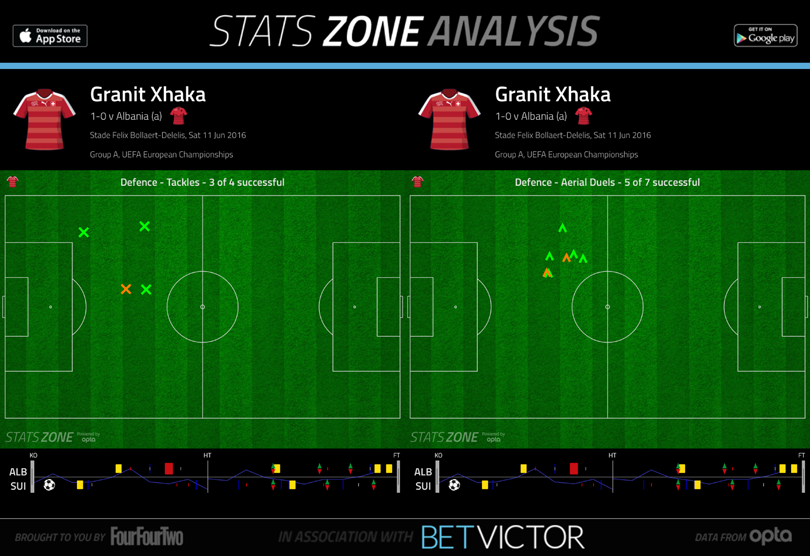
His passing against Albania was interesting. He kept things neat and tidy in the central midfield third, although looked to play the ball forward often, rather than simple sideways passes.
In the final third, there was a clear commitment to creating chances for team-mates. He played two good through-balls into the inside-left channel, and while his completion rate inevitably dropped when moving higher up the pitch, this was mainly because he was always attempting difficult, penetrative passes. Wenger will have admired that quality.
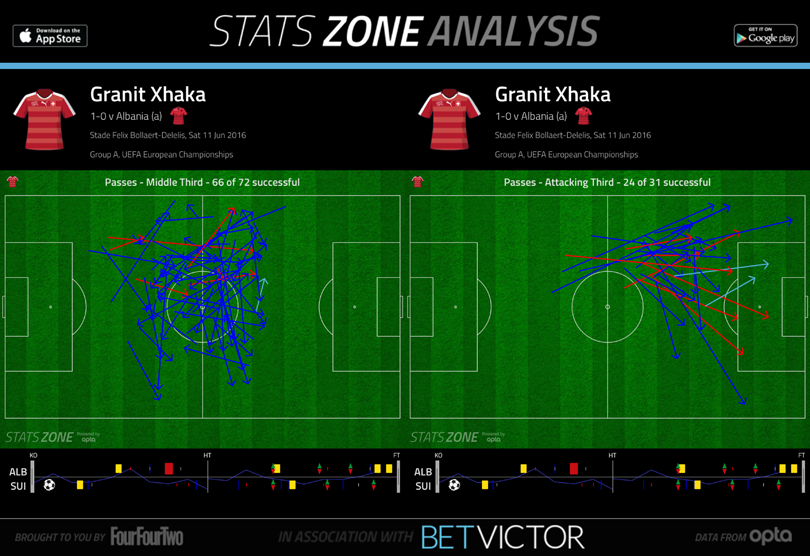
Tactically astute
It was particularly notable that he kept trying to play ambitious balls into the inside-right channel, which is where he created two good chances
In Xhaka’s subsequent two matches he was in different situations. In the 1-1 draw against Romania, Switzerland faced a relatively defensive-minded side, albeit one that kept a reasonably high line. Xhaka’s passing pattern was similar, although it was particularly notable that he kept trying to play ambitious balls into the inside-right channel, which is where he created two good chances, and also conceded possession regularly.
In the final group game, against France, Switzerland were the underdogs and playing for a point. So Xhaka’s passing was very different. Fewer balls were played into the final third, and he instead looked more readily to switch the play out to the full-backs.
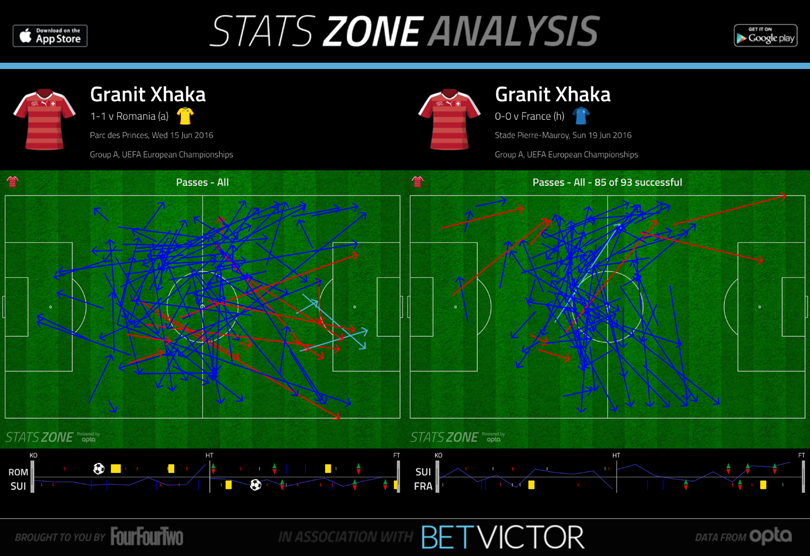
This underlines the fact that Xhaka isn’t just talented in a physical and technical sense – he boasts match intelligence too, and should be tactically useful for Arsenal next season. In a tournament where defensive midfielders have generally just defended, Xhaka appears to boast all-round midfield qualities.

